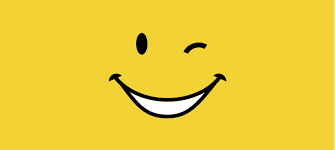左轉 聚會時間7:00pm--9:30pm
 尋找快樂的15種方法
Hector and the Search for Happiness wiki
尋找快樂的15種方法
Hector and the Search for Happiness wiki
Hector is a quirky psychiatrist who has become increasingly tired of his humdrum life. He tells his girlfriend, Clara, that he needs to go on a journey to research happiness. On a flight to China, he is seated next to Edward, a cranky businessman. Edward takes Hector to a very exclusive nightclub in Shanghai, where Hector meets a young woman named Ying Li and instantly falls for her.
He asks to meet Ying Li's family. She declines, ashamed of how she makes her living. Their date is interrupted by her pimp, who takes Ying Li away by force. Hector then ventures into the mountains and visits a monastery, where he befriends their leader and talks briefly with Clara via Skype.
Hector departs on a terrifying plane ride to Africa, where a woman invites him to her family's house for sweet potato stew. Hector runs into his old friend Michael, a physician, with his bodyguard Marcel, and later meets a quick-tempered drug lord named Diego Baresco, who doesn't believe in happiness because his wife is unhappy due to her medication.
Hector discovers that Marcel is Michael’s lover, and they are happy. He Skypes again with Clara, who is going out in a fancy gown and seems uninterested in talking to him. He meets a local woman and her family for dinner. His vehicle is carjacked and Hector is kidnapped and locked in a rat-infested cell. When the kidnappers decide to kill him, Hector claims to be friends with Diego to save himself, but cannot prove it. With a gun pointed at his head, Hector asks if he can make one final note in his book about what brings his captors happiness, revealing a pen engraved with Diego's name to the kidnappers. Upon his release, Hector makes his way back to the village where he celebrates with the locals.
While flying to Los Angeles, Hector attends to a woman with a brain tumour. Hector then goes to the beach in Santa Monica and encounters Agnes, an old girlfriend, who is now happily married with children. Hector calls Clara and they break up in an argument.
Agnes and Hector meet with Professor Coreman, who is studying the effects of happiness on the brain. During a lecture, Coreman points out that people shouldn't be concerned with the pursuit of happiness, but with the happiness of pursuit. Agnes and Hector check out a project Coreman has been working on, which monitors brain activity in real time and how it reacts to different emotions.
Agnes is instructed to go into an isolated room and think about three things: times when she was happy, sad and scared. Through his brain-scanning technology, Coreman is able to tell in which order she thought about the three emotions. When Hector takes his turn, he thinks about Clara marrying someone else, about his time being kidnapped, and about Ying Li, but his emotions are strangely blocked. He receives a call from remorseful Clara, who tells him she wants to be a mother. Hector explains what he's learned, that the most unhappy thing he could imagine would be to lose her. Suddenly Hector's brain scan erupts with a flurry of activity, mimicking the colored flags from the monastery and revealing that true happiness isn't just one emotion; it's all of them. Having finally achieved his own happiness, Hector rushes home and marries Clara.
Q:
What are the ways for “search for happiness”?
What do you think about psychiatrists?
How to be happy and worry-free?
Do you like watch comedy? What kind of movies you like?
Can travelling make us happier? Please, sharing your travelling experiences?
What make people unhappy? How to get rid of bad emotion?
有錢人做得不樣
9 Things Rich People Do Differently Every Day businessinsider.com
warren buffett fortune summit
In fact, your daily habits may be a major determinant of your wealth.
"The metaphor I like is the avalanche," says Thomas Corley, the author of "Rich Habits: The Daily Success Habits Of Wealthy Individuals." "These habits are like snowflakes — they build up, and then you have an avalanche of success."
And what are those rich habits that are so influential? Here are a few:
Rich people always keep their goals in sight.
"I focus on my goals every day."
Rich people who agree: 62%
Poor people who agree: 6%
And they know what needs to be done today.
"I maintain a daily to-do list."
Rich people who agree: 81%
Poor people who agree: 19%
They don't watch TV.
"I watch TV one hour or less per day."
Rich people who agree: 67%
Poor people who agree: 23%
They read … but not for fun.
"I love reading."
Rich people who agree: 86%
Poor people who agree: 26%
Plus, they're big into audio books.
"I listen to audio books during the commute to work."
Rich people who agree: 63%
Poor people who agree: 5%
"I do more than my job requires."
Rich people who agree: 81%
Poor people who agree: 17%
They aren't hoping to win the jackpot.
"I play the lottery regularly."
Rich people who agree: 6%
Poor people who agree: 77%
They watch their waistline.
"I count calories every day."
Rich people who agree: 57%
Poor people who agree: 5%
And they take care of their smiles.
"I floss every day."
Rich people who agree: 62%
Poor people who agree: 16%
Q:
Do you think rich people do differently from ordinary people?
What do you think about this quote “your daily habits may be a major determinant of your wealth”?
Do you always keep your goals in sight?
Do you maintain a daily to-do list?
How often you watch TV?
How often you do reading?
Do you hoping to win the jackpot?
Do you watch your waistline?
尋找快樂的方法
"你幸福嗎?"
等等,這個問題或許過於抽象、廣泛,那換一種問法,
"你是個快樂的人嗎?"
大多數的人被問到此問題,反應大概都會是陷入沉思,或是開始想著"如果如何如何,那麼我會很快樂"之類的回答,每個人對於"幸福/快樂"的定義都不盡相同,往往都會將他想成是一個目標,一個終極追求,也許,我們都將其複雜化了。
尋找快樂的15種方法Hector and the Search for Happiness]將要告訴你一個簡單且人人皆知的概念:活在當下,誠實的面對自己,每一個當下都會是美好的。


















0 意見:
張貼留言